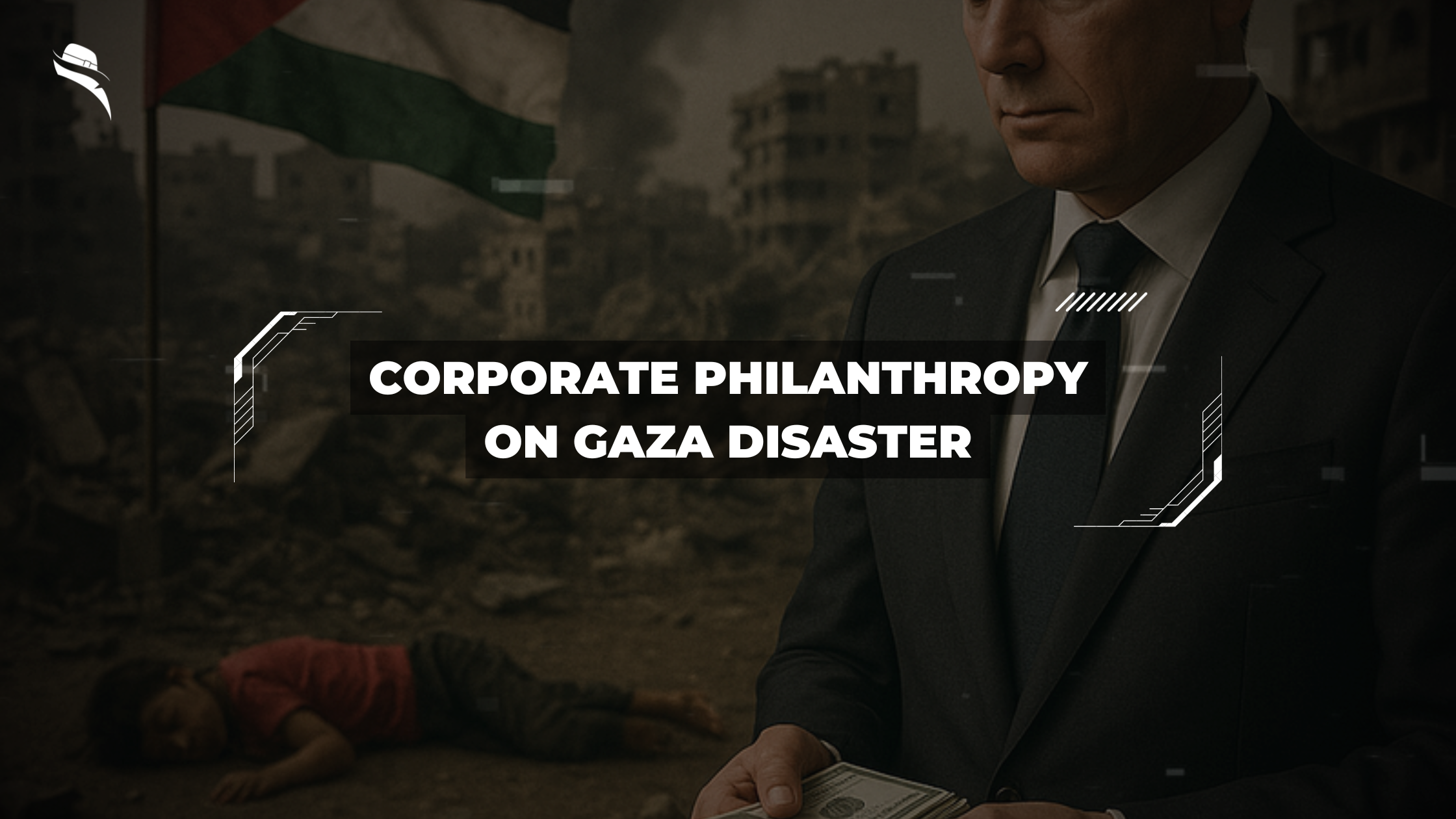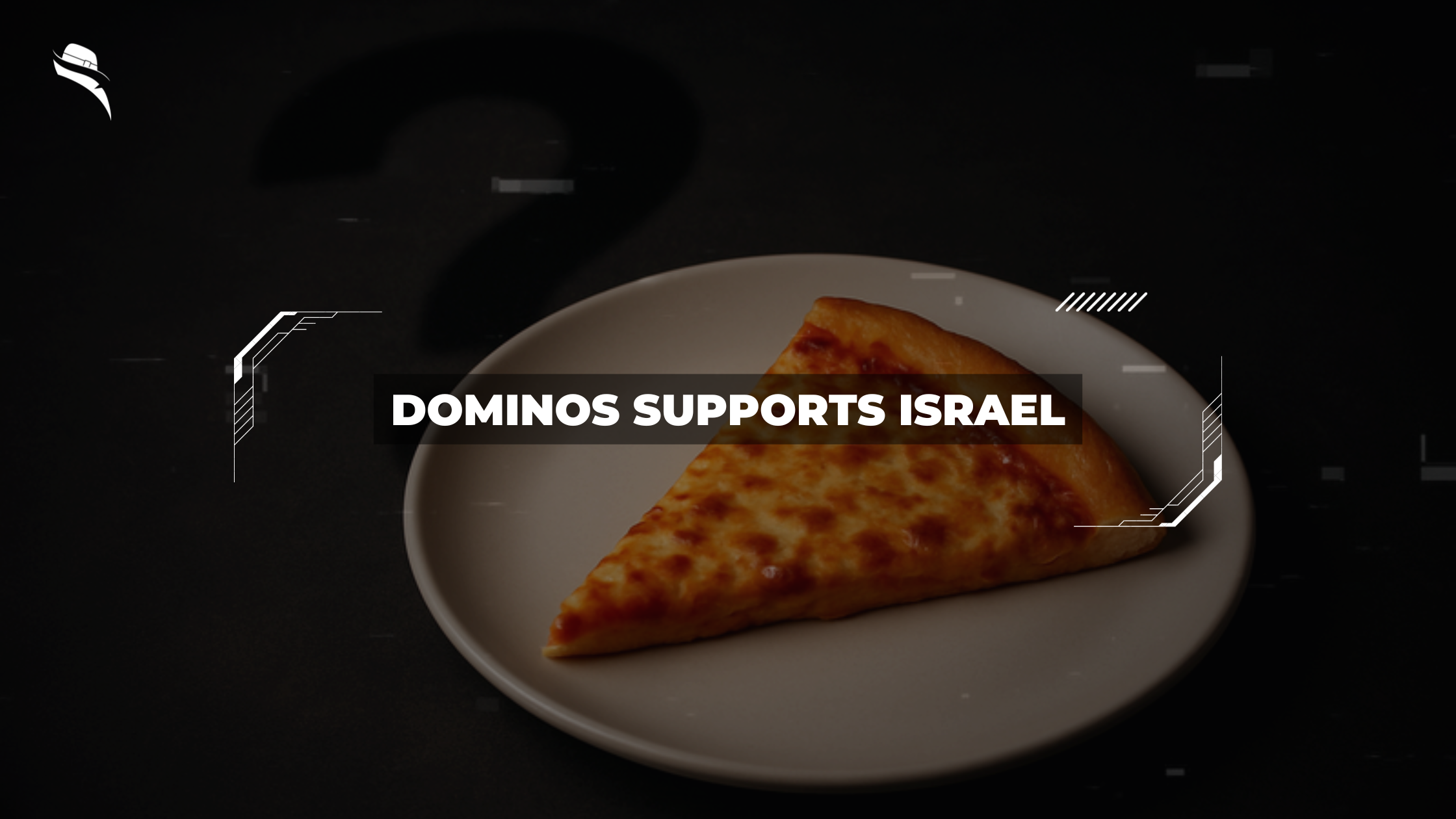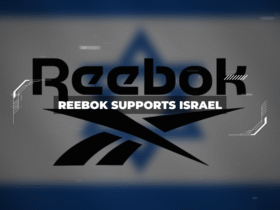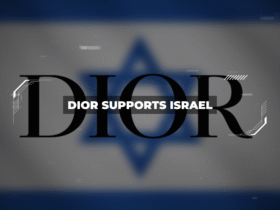Corporate Philanthropy on Gaza Disaster presents a complex ethical landscape as businesses navigate their roles in a humanitarian crisis. Nonprofits taking a stance on the ongoing conflict have collectively lost between $5 million and $10 million over several months, while the International Court of Justice has determined that claims of genocide in Gaza are “plausible”.
Meanwhile, major financial institutions like BNP Paribas and Barclays have underwritten Israeli treasury bonds, helping to fund military operations, even as dozens of philanthropic organizations call for an immediate ceasefire. According to United Nations reports, Israel’s actions have cost the Palestinian economy approximately 35 percent of its GDP, raising serious questions about corporate complicity. Furthermore, companies investing in or partnering with Israeli enterprises now face significant risks of “aiding and abetting genocide” under international humanitarian law.
This article examines how corporate philanthropy intersects with the Gaza conflict, exploring both the businesses that enable military operations and those funding organizations calling for peace.
Corporate Philanthropy on Gaza Disaster
The global corporate machinery supporting Israel’s actions in Gaza operates through an extensive network spanning multiple sectors. A recent UN report reveals how corporate entities have not merely enabled but actively profited from what it terms “Israel’s economy of illegal occupation, apartheid and now, genocide”.
How businesses support the Israeli military and economy
Major weapons manufacturers form the backbone of Israel’s military capabilities. Companies like Lockheed Martin and Leonardo supply F-35 and F-16 fighter jets that have dropped an estimated 85,000 tons of bombs on Gaza. Additionally, Israeli arms manufacturers Elbit Systems and Israel Aerospace Industries (IAI) provide a critical domestic supply of weaponry, ranking among the top 50 arms producers globally.
The technology sector plays an equally crucial role. Microsoft, Alphabet (Google’s parent company), and Amazon grant Israel “virtually government-wide access to their cloud and AI technologies,” enhancing its data processing and surveillance capabilities. Palantir Technologies has expanded its support to the Israeli military since October 2023, reportedly providing automatic predictive policing technology used for battlefield decision-making.
Heavy machinery manufacturers such as Caterpillar Inc. and HD Hyundai have supplied equipment documented in mass demolitions of homes, mosques, and infrastructure. These companies “have continued supplying the Israeli market despite abundant evidence of Israel’s criminal use of this machinery and repeated calls from human rights groups to sever ties”.
The shift from occupation to genocide
Prior to October 2023, corporate entities enabled what UN Special Rapporteur Francesca Albanese describes as an “economy of occupation”. However, after this date, “long-standing systems of control, exploitation and dispossession metamorphosed into economic, technological and political infrastructures mobilized to inflict mass violence and immense destruction”.
This transformation has been especially evident in how surveillance and incarceration technologies, previously used to enforce segregation, “have evolved into tools for indiscriminate targeting of the Palestinian population”. Essentially, what once facilitated occupation now enables mass destruction.
Examples of corporate involvement post-October 2023
Since October 2023, corporate involvement has intensified across multiple sectors:
- The Tel Aviv Stock Exchange rose an unprecedented 179-213 percent, adding $157.90-225.70 billion in market value
- Israel’s military spending surged 65 percent from 2023 to 2024, amounting to $46.50 billion
- Financial institutions, including BNP Paribas and Barclays, underwrite Israeli treasury bonds, allowing Israel to “contain the interest rate premium, despite a credit downgrade.”
- Booking.com and Airbnb continue to list properties in illegal settlements, with Airbnb practicing what the UN report terms “humanitarian-washing”
The extent of involvement has prompted calls for accountability. The UN report references historical precedents like the Nuremberg tribunal’s IG Farben trial, which prosecuted German industrialists after World War II. As Albanese notes in her report, “Palestine is a mirror held up to the world’s moral and political failures”.
The complicity extends beyond direct military support. Israel’s campaign has been sustained through an intricate web of corporate actors who have treated Israel’s actions “as ordinary economic activity—wilfully ignoring documented, systemic abuses, even as atrocities mounted after 7 October 2023”.
Legal frameworks governing corporate responsibility
“Companies must conduct heightened human rights due diligence regarding both their operations and their whole supply chain to identify risks of where they may be contributing to violations against Gaza’s civilian population.” — Dr. Irene Pietropaoli, Senior Fellow in Business and Human Rights, British Institute of International and Comparative Law
Legal frameworks across multiple jurisdictions define corporate responsibility in conflict zones, establishing clear obligations for businesses operating in or supporting activities related to the Gaza crisis.
UN Guiding Principles on Business and Human Rights
The UN Guiding Principles, established in 2011, create a global standard requiring companies to respect human rights throughout their operations. These principles apply to all businesses regardless of size, sector, or structure and recognize that companies must comply with applicable laws and respect human rights as “specialized organs of society”.
Notably, the Guiding Principles emphasize that businesses face “heightened risks” in conflict-affected areas, requiring enhanced due diligence proportionate to the severity of potential harm. Companies cannot claim ignorance as a defense, given that “business and investment leaders must refrain from deluding themselves that international law is someone else’s problem”.
In practice, this means corporations selling weapons or providing financial services to Israel must conduct rigorous human rights assessments or face potential complicity charges.
International humanitarian and criminal law
International humanitarian law (IHL) binds both states and non-state actors, including corporations, particularly during armed conflicts and occupations. This legal framework defines war crimes as serious violations committed with criminal intent, including deliberately attacking civilians, collective punishment, and starvation.
The prohibition against genocide constitutes a jus cogens norm—a fundamental principle from which no entity, including corporations, can derogate. Corporate complicity occurs when a company provides assistance that has a “substantial effect” on the commission of crimes, even without intending harm but merely knowing of foreseeable effects.
Consequently, arms manufacturers, technology providers, and financial institutions face significant legal exposure if their products or services facilitate violations. Under international criminal law, both corporate executives and potentially corporations themselves can be held liable for aiding and abetting international crimes.
ICJ and ICC rulings on Israel genocide Gaza
The International Court of Justice (ICJ) ruled in January 2024 that South Africa’s genocide claims against Israel were “plausible,” ordering Israel to prevent genocide and ensure humanitarian aid reaches Gaza. This ruling established that “in the Court’s view the survival of Palestinians in Gaza is at risk”.
In parallel, the International Criminal Court (ICC) has jurisdiction over the situation in Palestine since 2015. In November 2024, the ICC issued arrest warrants for Israeli Prime Minister Benjamin Netanyahu and Defense Minister Yoav Gallant, finding “reasonable grounds to believe” they used starvation as a method of warfare and intentionally directed attacks against civilians.
The ICC determined that both officials “intentionally and knowingly deprived the civilian population in Gaza of objects indispensable to their survival”. For corporations, these rulings create significant legal risks, as the ICC can prosecute those who facilitate crimes through the “provision of means”.
Sectors profiting from the genocide
“Companies that provide weapons, arms, ammunition, technology, oil and fuel, intelligence and other military supply to the government of Israel should stop any further operations to avoid risk being directly complicit in ongoing violations.” — Dr. Irene Pietropaoli, Senior Fellow in Business and Human Rights, British Institute of International and Comparative Law
Several industrial sectors have seen financial windfalls from Israel’s operations in Gaza, often recording profit surges amidst the humanitarian crisis.
Arms and military technology companies
Weapons manufacturers have experienced substantial financial gains throughout the conflict. Boeing expedited delivery of 1,000 250-pound bombs and 1,800 GPS-guidance bomb kits to Israel as part of a USD 735 million commercial sale. Major defense contractors including BAE Systems, Boeing, and Lockheed Martin achieved record profits and climbing stock prices. Israel’s military spending surged 65 percent from 2023 to 2024, totaling USD 46.50 billion – one of the highest per capita rates worldwide.
Tech and surveillance firms
Big tech corporations provide critical infrastructure for Israel’s military operations. Microsoft, Alphabet (Google), and Amazon grant Israel “virtually government-wide access to their cloud and AI technologies”. After Israel’s internal military cloud overloaded in October 2023, these companies stepped in with crucial cloud and AI technology. Moreover, Israeli military computer chief Col. Racheli Dembinsky described this technology as “a platform that’s a weapon”. Palantir Technologies expanded its military support since October 2023, reportedly providing predictive policing technology for battlefield decision-making.
[Read full article: Tech Companies That Support Israel]
Construction and heavy machinery suppliers
Heavy equipment manufacturers supply machinery documented in mass demolitions. In November 2023, Israel’s Ministry of Defense initiated urgent procurement of dozens of Caterpillar D9 bulldozers. These armored bulldozers have been widely used for house demolition, settlement construction, and infrastructure destruction in Gaza. Beyond Caterpillar, companies like HD Hyundai and Volvo continue “supplying the Israeli market despite abundant evidence of Israel’s criminal use of this machinery”.
Energy and resource extraction corporations
Chevron stands as the largest producer of natural gas for Israel and the largest multinational with significant stakes in Israel’s energy sector. In 2023, Chevron made an estimated USD 1.50 billion in revenue from Tamar and Leviathan gas sales. Additionally, investor-owned oil companies collectively supply 66% of Israel’s oil, with major firms like Chevron, BP, ExxonMobil, Shell, Eni, and TotalEnergies responsible for over half this supply.
Agribusiness and global retail chains
Israeli agritech companies are deeply implicated in occupation practices. Netafim, 80-percent owned by Mexico’s Orbia Advance Corporation, provides infrastructure to exploit water resources in the occupied West Bank. Similarly, Chinese Bright Dairy & Food’s majority ownership of Tnuva, Israel’s largest food conglomerate, benefits from land seized from Palestinians. These agricultural technologies form “a largely invisible layer in the ongoing process of dispossession”.
The role of global finance and investment
Financial institutions worldwide have become critical enablers of Israel’s military operations in Gaza through various mechanisms that provide essential funding, investment, and risk management services.
Banks underwriting Israeli treasury bonds
Global banking giants have played a pivotal role in financing Israel’s military operations by underwriting treasury bonds. Israel issued sovereign bonds worth USD 19.40 billion between October 2023 and January 2025 specifically to fund its war on Gaza. Goldman Sachs emerged as the largest underwriter, handling over USD 7.00 billion in Israeli “war bonds”. Other major underwriters include Bank of America, Deutsche Bank, BNP Paribas, Citi, Barclays, and JPMorgan Chase. These banks effectively boosted market confidence and contained interest rate premiums despite Israel’s credit downgrade.
Asset managers and sovereign wealth funds
Investment firms have channeled substantial capital into Israeli government bonds and military-linked companies. PIMCO, owned by German financial services company Allianz, purchased nearly USD 1.00 billion in Israeli “war bonds”. BlackRock acquired USD 68.00 million in Israeli bonds, alongside major stakes in companies like Palantir (8.6%) and Lockheed Martin (7.2%). Vanguard invested USD 546.00 million in bonds and holds significant positions in Caterpillar (9.8%) and Chevron (8.9%). Norway’s Government Pension Fund increased its investment in Israeli companies by 32% since October 2023, now totaling USD 1.90 billion.
Insurance companies and risk underwriting
The insurance sector has responded to the conflict by hiking premiums and reducing coverage. War risk premiums for shipments to Israel soared to between 0.7% and 1.0% of vessel value for seven-day voyages, compared to 0.2% before the escalation. Marine, aviation, cyber, and terrorism insurers face immediate underwriting pressures and potential accumulation losses. Many insurers have imposed 48-hour cancellation notices for aviation hull war cover.
Faith-based and charitable financial enablers
Religious organizations have directed significant funding toward Israeli settlements. Christian groups have poured millions of dollars into settlements in the occupied West Bank. Organizations like Christians for Israel Operations Foundation (CFOIC) contributed nearly USD 600,000 to settlement projects in 2014, while the Hebron Fund reportedly donated USD 1.70 million in 2013.
Corporate philanthropy: Enabler or resistor?
Amid the Gaza conflict, corporate philanthropy stands at a crossroads, torn between humanitarian impulses and institutional self-preservation. The resulting responses reveal profound contradictions in how businesses and foundations navigate this crisis.
Gaza fundraising and humanitarian-washing
Companies continue operations in occupied territories while donating to relief efforts. Airbnb briefly delisted properties in illegal settlements in 2018 but later reverted to donating profits from such listings to humanitarian causes, a practice UN experts term “humanitarian-washing”. In fact, the Gaza Humanitarian Foundation, despite its nonprofit status, involves for-profit companies positioned to benefit financially from relief contracts. This approach transforms humanitarian aid into what critics call “aid washing” – framing political issues as primarily humanitarian crises to avoid addressing root causes.
Philanthropic silence vs. active complicity
For many nonprofits, fear of retaliation drives inaction. As one organization noted, “The fear is not just of being branded as anti-Semitic; it’s existential: rich people may pull their money, without which nonprofits cannot function”. Therefore, silence often represents calculated self-preservation rather than neutrality. A survey of 41 predominantly U.S.-based multinational corporations found 21% expected to cut their philanthropic response to the conflict over the next year, with only 12% planning increases.
Examples of funders calling for a ceasefire
Even so, some philanthropic institutions have taken principled stands. In November 2023, more than 500 foundations, philanthropic organizations, and individual donors issued an open letter calling for an immediate ceasefire. Among notable signatories were Human Rights Funders Network, Global Fund for Women, and Ben & Jerry’s Foundation. The Open Society Foundation likewise called for a diplomatic effort towards bringing a ceasefire.
The backlash against pro-Palestinian nonprofits
Organizations supporting Palestinian rights face severe consequences. Multiple BIPOC-led nonprofits lost hundreds of thousands in funding after expressing support for Palestine. For instance, an abortion fund lost “hundreds of thousands of dollars” after supporting a ceasefire, while the DC Abortion Fund lost a $30,000 grant renewal opportunity. Furthermore, HR 9495 threatens to eliminate tax-exempt status for nonprofits deemed to support terrorism, creating what some describe as a “chilling effect” on free speech.
Final Thoughts
The historical precedent of South Africa’s apartheid regime offers a compelling parallel to the current corporate entanglement with Israel’s actions in Gaza. Businesses that once profited from apartheid eventually faced global condemnation, UN sanctions, and forced disinvestment that helped dismantle the regime. This pattern suggests potential long-term consequences for companies currently maintaining economic ties with Israel.
UN Special Rapporteur Francesca Albanese’s report explicitly warns that the International Court of Justice’s 2024 rulings and ICC arrest warrants should have put all actors—including corporations—on notice. Nevertheless, corporate entities have continued engagement, often focusing on “narrow technicalities” instead of confronting the “structural illegality of their ties”.
As Albanese pointedly states: “Palestine is a mirror held up to the world’s moral and political failures”. Her comparison to corporate complicity in apartheid South Africa and Nazi Germany underscores how this moment represents a defining test of whether global markets can exist without promoting injustice.
Indeed, African, Asian, and Arab states have backed calls for disinvestment, with many agreeing that genocide is taking place. Even European nations traditionally supportive of Israel have condemned the denial of aid to Gaza. This growing international consensus places additional pressure on corporations with global interests.
Although Israel rejects genocide allegations, citing self-defense following the October 7, 2023 Hamas attack that killed 1,200 people, the subsequent war has killed more than 56,000 Palestinians according to the Gaza Health Ministry. The scale of destruction has prompted over 500 philanthropic organizations to call for an immediate ceasefire.
Altogether, corporations now face an ultimatum articulated by Albanese: they “cannot claim neutrality” but are either “part of the machinery of displacement—or part of dismantling it”. This stark choice defines the moral reckoning confronting corporate philanthropy in relation to Gaza.







Leave a Reply